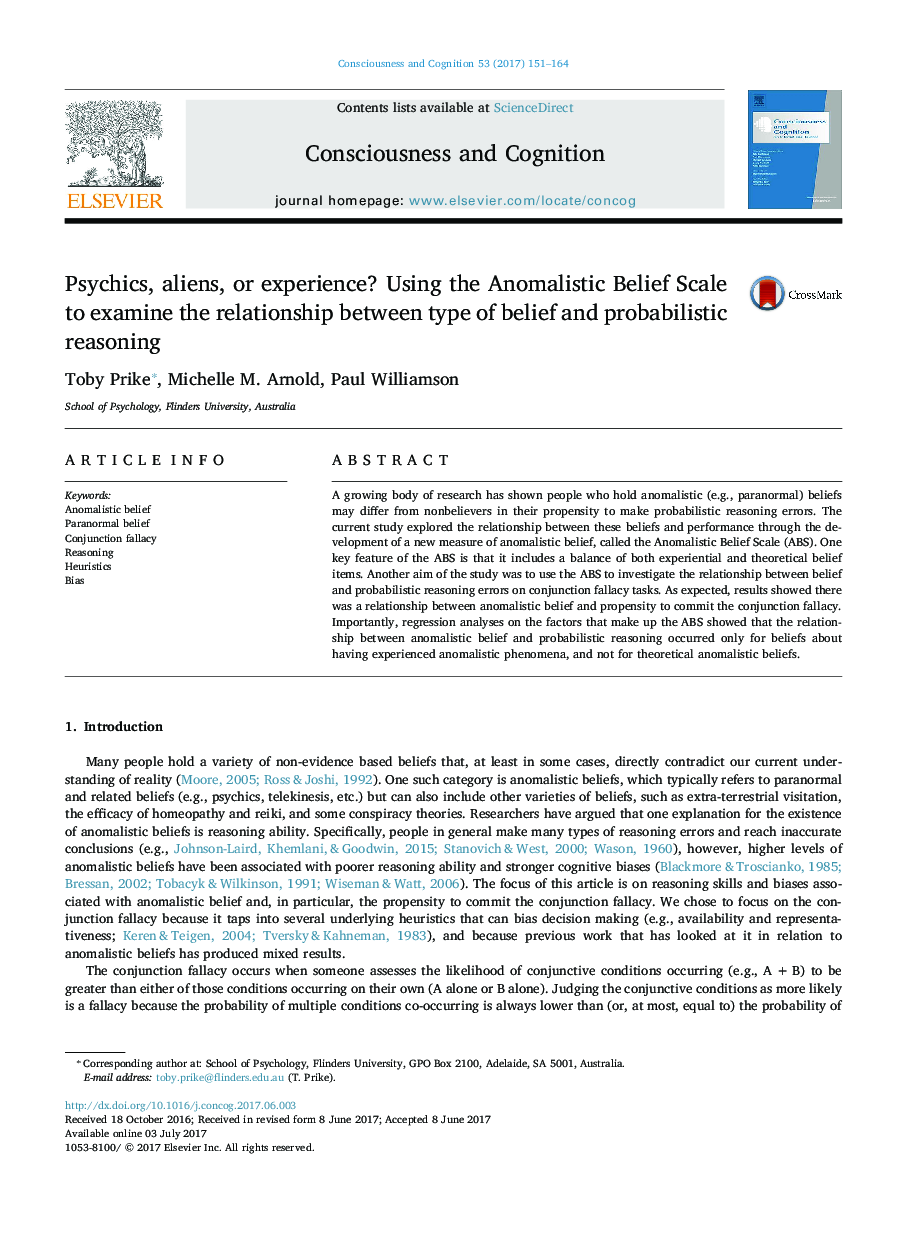| Article ID | Journal | Published Year | Pages | File Type |
|---|---|---|---|---|
| 5041789 | Consciousness and Cognition | 2017 | 14 Pages |
â¢A newly developed anomalistic belief scale is presented.â¢Four belief factors of the scale were identified.â¢Relationships between the conjunction fallacy and the belief factors were analysed.â¢Only experiential belief was related to conjunction fallacy performance.â¢No relationships were found between the theoretical beliefs and conjunction fallacy performance.
A growing body of research has shown people who hold anomalistic (e.g., paranormal) beliefs may differ from nonbelievers in their propensity to make probabilistic reasoning errors. The current study explored the relationship between these beliefs and performance through the development of a new measure of anomalistic belief, called the Anomalistic Belief Scale (ABS). One key feature of the ABS is that it includes a balance of both experiential and theoretical belief items. Another aim of the study was to use the ABS to investigate the relationship between belief and probabilistic reasoning errors on conjunction fallacy tasks. As expected, results showed there was a relationship between anomalistic belief and propensity to commit the conjunction fallacy. Importantly, regression analyses on the factors that make up the ABS showed that the relationship between anomalistic belief and probabilistic reasoning occurred only for beliefs about having experienced anomalistic phenomena, and not for theoretical anomalistic beliefs.
